Plex: 17 April 2024
‘Act Local’ School Takes Action ; The Science of Survival ; Character and Circumstances Both Needed ; Jankifiers ; Easter in Golden Gate Park; 1968–My First Whiff of Bullshit; On Fixing, On Rescuing
The Biweekly Plex Dispatch is an inter-community newspaper published by Collective Sense Commons on first and third Wednesdays of each month. Price per issue: 1 USD, or your choice of amount (even zero).
In This Issue
- ‘Act Local’ School Takes Action (Kevin Jones)
- The Science of Survival (Klaus Mager)
- Character and Circumstances Both Needed (Douglass Carmichael)
- Jankifiers (Peter Kaminski)
- Easter in Golden Gate Park (Ken Homer)
- 1968–My First Whiff of Bullshit (Ken Homer)
- On Fixing, On Rescuing (Patti Cobian)
charles blass
‘Act Local’ School Takes Action
by Kevin Jones
A 10-year-old, well-regarded Black-led urban farm in a food desert has come under attack from the housing authority, which owns the land; they want to demolish it to create a playground. They have not talked to the community or the board.
We had a leader of the farm speak to our Act Local School and five people have taken action, writing letters, submitting petitions, and using their influence with city officials.
The hearing is on the 24th. This unites environmentalists and social justice folks.
charles blass
The Science of Survival
Conversations with AI
by Klaus Mager
Today in the face of climate change and a rapidly deteriorating environment, with a planet at risk of passing tipping points that could make it uninhabitable for Homo sapiens and mammals in general, people around the world are turning again to religion to search for answers, but not asking the questions that need to be asked. Conflicts are rising, regions are losing their ability to feed and support a growing population, causing migrations and wars.
The stories that have governed societies have at times been forced to deal with existential realities that forced rapid alignment. The Christian Reformation initiated by Martin Luther comes to mind, or the Pearl Harbor attack during WWII that resulted in rapid adaptation and remarkably rapid reforms.
The challenge now is global; how to convince people around the world, embedded in different belief structures and living in different socioeconomic circumstances, to adapt to the science and evidence-based insights that change is an existential need, an imperative.
Placing nature at the center of God's creation is central to our own survival, suggesting a story outline that could cut across different religions, different understandings of a God or Gods, different ideas about economics and social systems.
Read more: The Science of Survival (Google Docs)
charles blass
Character and Circumstances Both Needed
by Douglass Carmichael
Societal change is needed - but we might not get it in time, or ever. It just might not be in the human repertoire to consciously change social arrangements. When I was spending much of my time consulting with senior executive teams, I became aware that change required both a change in the attitudes of the team members and the range of willingness to undertake semi-unpleasant tasks that were scorned in the past but may be necessary in the future. In such circumstances, the arrangement of the physical world, will need to change to provide material support to needed new actions. The key here is the need for coherence.
A simple but profound example: take a group of executives for a weekend retreat, and they return Monday to the same offices, the secretary sitting in the same place, the water cooler in the same place, the clock on the wall in the reception area, and each person’s private office is found just as they left it. I concluded that the old habits of thinking and communication were reestablished as soon as the execs returned from their weekend retreat and the rich discussion and potent ideas from the weekend were lost as soon as the first moments of the return. All the old ways of walking the hall, who to talk with, and how to restart work reemerged as the default. I proposed that for the upcoming retreat, half the money should be spent on rearranging, from the paint on the wall, the surface of the floor, the furniture rearranged or even replaced. Then it is possible that some of the good yields of the retreat can be carried forward in time.
For climate change, the same holds but requires more time, effort, cost, and imagination. But the changes we need will not happen if the people are not willing to bend a bit to new habits and that the new habits must be supported by new environments.
The literary critic Kenneth Burke wrote extensively about social change and proposed what he called the scene-act ratio. Imagine going to a theater to see a play. When everyone is seated, the lights go down, the curtain opens up on a stage set. Everyone can tell what to expect from the set. A stage set for a kitchen in a Chicago tenement will feel very different and support different ways of behaving, from a stage set representing a posh LR in the style of Beverly Hills or Versailles. This is before the actors move on stage. This example makes clear that there must be some congruence, some good fit, between the action to be performed, the scene, and the character of the people as acted by the actors. The same for adapting to climate change. The new mix of character and scene must have some degree of coherence if new actions are to be performed.
One of the big issues for climate adaptation is going to be food. Most city people grow up phobic about dirt. The idea that a handful of soil smells good and looks plush is not an easy shift from the button-pushing world they have grown to manage. Yet coming to be comfortable in the world of growing things will be necessary for a large part of the population if they are to eat. Rotting lettuce must be seen as organic and necessary, not as something to throw up about.
All climate proposals, such as cutting energy use significantly will test the strength of the people. They must change what they do, but this will be given an uncomfortable nudge as circumstances are forced to change, such as having to choose between a limited heated house or cooking food with the limited energy available. Instead of a walk down the aisles of the grocery store, people will need to walk among piles of rubble, rot, and maybe violence to get anything eatable. Many will just give up. Those who are trying to lead will benefit by taking into account the way the environment - the scene - motivates, frustrates, or even disgusts the people. The Arts and Crafts (see wiki) movement blended fairly simple shelter design and adjacent gardens in ways that made new adaptations not only doable but interesting and even attractive.
A favorite quote is:
To make the frozen circumstances dance, you have to sing to them their own melody.
Yo soy yo y mis circunstancias - Ortega y Gasset (or Unamuno!)
charles blass
Jankifiers
by Peter Kaminski
Over in AI Salon, I'm teaching folks how to do things with AI tools like large language models and image generators, in my Learn and Do with Peter space.
I came up with a cool concept, Jankifiers. The underlying idea is that you can ask ChatGPT to do simple programming for you, even if you don't know anything about programming.
I started with Python-by-ChatGPT, but Python apps are a little hard to run unless you're already a software developer. And then I thought about it: JavaScript is as powerful as Python, and every web browser has a built-in JavaScript execution environment!
So now we ask ChatGPT to create a single HTML + JavaScript file. The output is a text file, which is also an HTML file, which is a web page when your browser loads it, and it can run code! Here's the general prompt structure (again, no programming experience necessary, just replace the ALL CAPS sections):
Write a single html file with javascript. Let the user enter some text. When the user presses the "YOUR BUTTON NAME HERE" button, WHAT YOU WANT TO HAPPEN. Display the output and copy it to the clipboard. Don't show an alert. Let me download the html file.
Our first experiments have been to do text transformations. That's the fancy way to say it; a more plain way to say it is that we "jankify" text. Make the text different, and a little weird.
Weird text turns out to be useful to feed to image generators; when you want something a little different, jankify up a prompt, and voila! Some different, interesting image you wouldn't expect. And as we jankify, we're learning a little about programming, HTML, file management, etc.–while having fun and being creative.
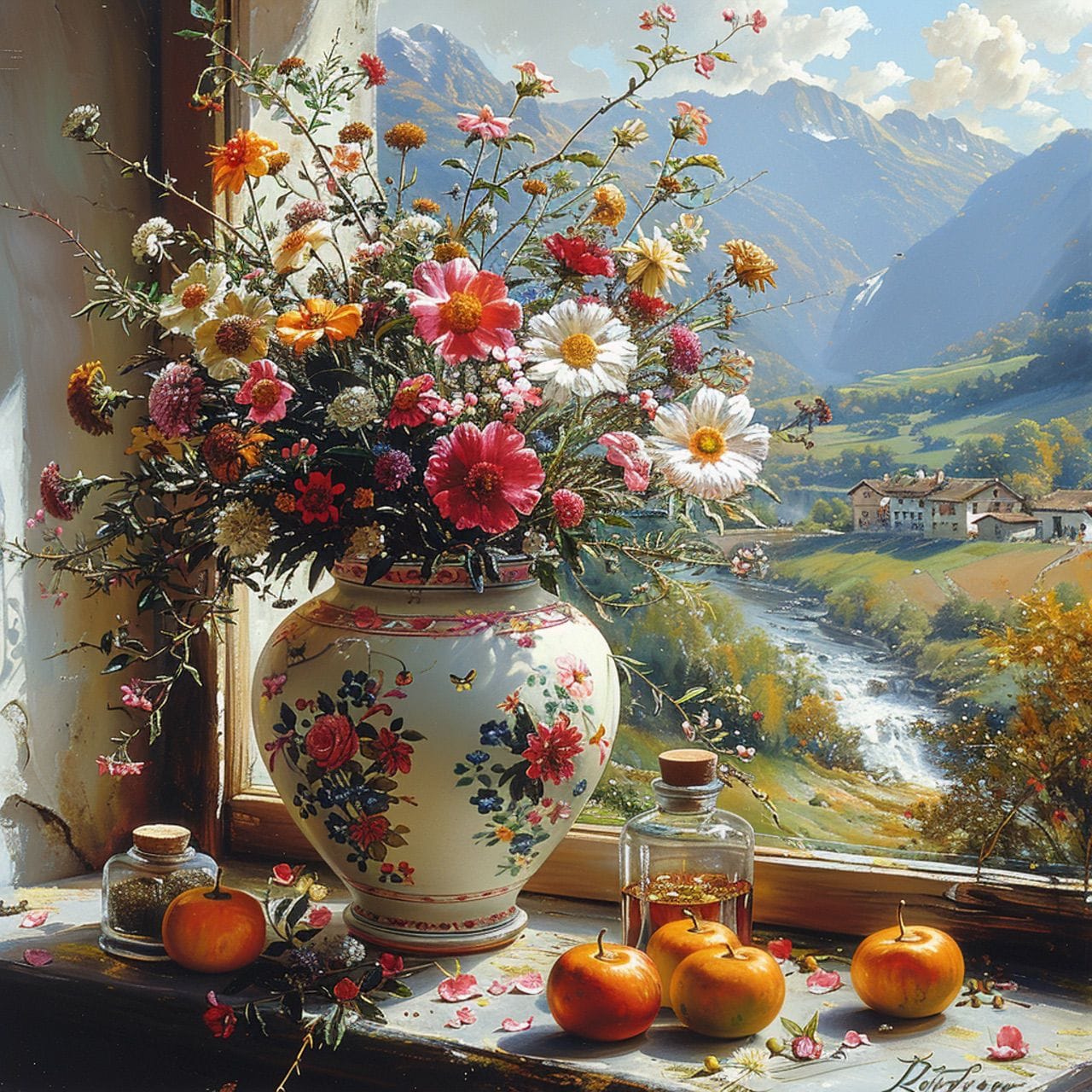


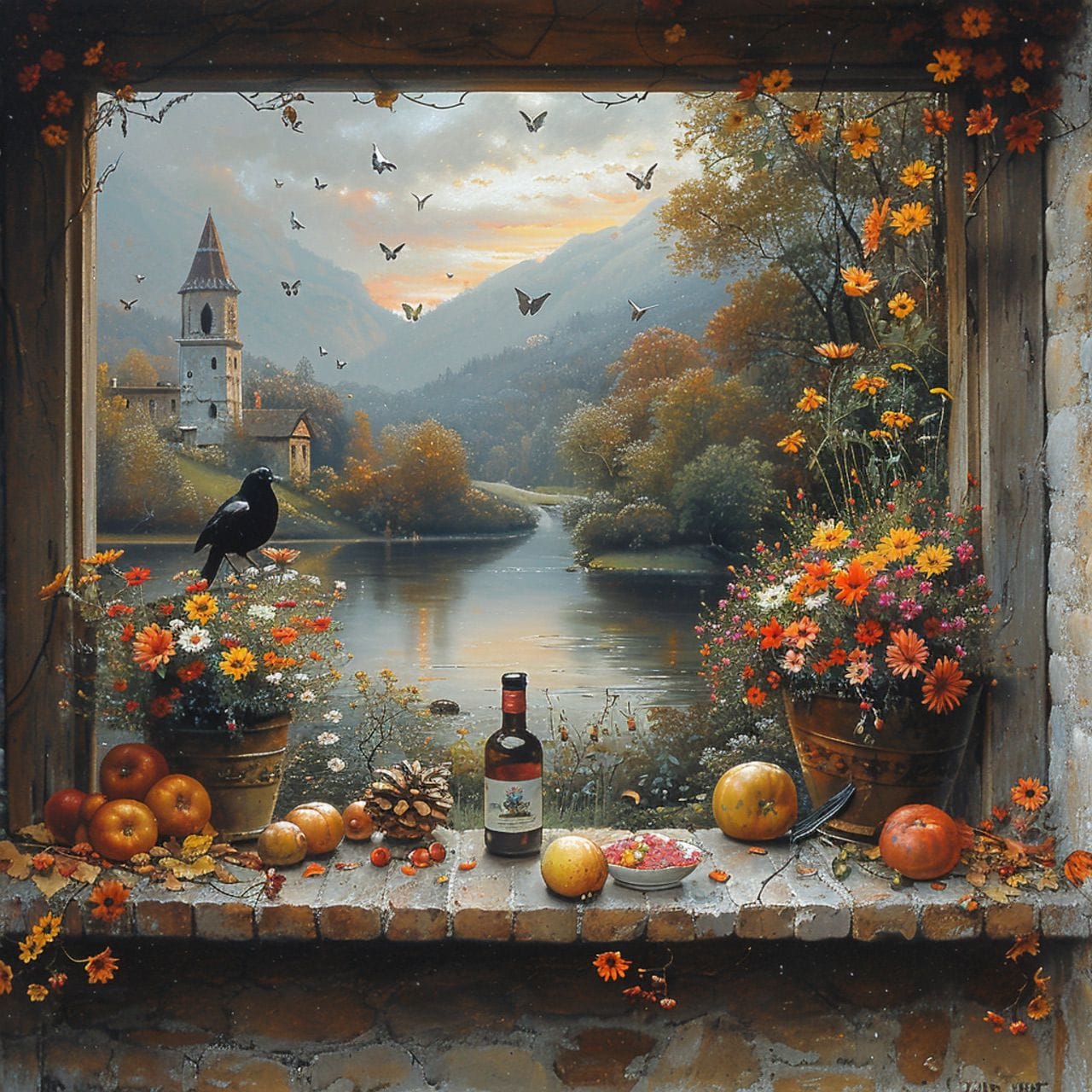
Original prompt; after Janky Rhymifier+Letterrific; after Sortor; after Reverse Jankifier + Racoonify + Janky Rhymifier All images by Midjourney v6.0
Original prompt: Create an image of a large, ornate vase with a vibrant array of flowers in full bloom. The vase should be intricately decorated with floral patterns and sit on a windowsill. A picturesque countryside view with mountains, rolling hills, and a flowing river should be visible through the window, bathed in the warm glow of autumn. On the windowsill, place several persimmons and a glass jar with spices. Petals should be scattered around the fruits, adding to the still life composition. The scene should have a rich, warm color palette, conveying a cozy, serene atmosphere, typical of a traditional pastoral scene.
After Janky Rhymifier+Letterrific: Crrcesatther zatnt miamtaogwey uovfx taz rgkanrxgcet,a woyrinhaqtkei hpkapsfej ywjistvhp cab yveirbzrzabnatq qaorbrcaxyh nobfd urcofwpemresi hipnt nfruplvlw zbplqotohmc.k rcgeq ytfazsmei hzcocuuledf lblen hiinztyrqiecnagtfemluyt cdcelcioprkavtyeodo qwdigtghx qnooaruaklm bhjaltrtcexrsnnsu xajnbdn vstirtb qocnf iaf ewmiznvduoowqsgiilalg.d xAi ldsircotouhraersaqpuwet jcxomuqnotnryybshijdfep ivpiaeawg twwirtghn ecaopulnjtoanicnssv,r tdvoolwlnidnmgo lhxidlclwsg,m dagnjdd may osdopwliznmge dqpiuvcegrv wzuopuilkde mbyep lvyilstiibnlheb atzhtreotungkhb wntej fwuiknbdborwo,t ibhartvhvevde fifnz rwhej chqarrqmo yxnoawr noxfm vanumtxutmonf.b rOrnj qtvhney awrijnudpolwusdizlwlk,v ipflmakcgej mwsedvveurqaulg nplehrksnidmqmgowntsu sabnrdz jac rgtauscsi jjsafrl jwuivtshg cxzisclelsx.d lPweltrailost jyfotuylnda lbgep bjcaatstzecrkeqdd xaprxokuynmdb rthhked bfgrhuziptcsy,j cafdgdzicnugi utoow utuhsef qsdtxialjlc rpmibfmeq kmhommcpiohskixtfitopnq.z lTchher bszcretnrey skhoxuylads xhyapvaez may bwsidcshu,s dllatrrmu icxoblvogrc ppvahlleutktneh,g plvownbvkebyuimnzgz jaf nquonzgyq,r tsoevrlevnjex xajtbmmojstpghbelrleo,q ktuynpuixcjally popfj sac atorqakdpiktliwozniahlr pprafsltaogrmaxlx bsucnesngei.
After Sortor: Caeert an aegim fo a ,aeglr aenort aesv hitw a abinrtv aarry fo eflorsw in fllu .blmoo Teh aesv dhlosu be aceiilnrtty acddeeort hitw afllor aenprstt adn ist no a .diillnosww A ceeipqrstuu cdeinorstuy eivw hitw ,aimnnostu gillnor ,hills adn a fgilnow eirrv dhlosu be beiilsv ghhortu eht ,dinoww abdeht in eht amrw glow fo .amntuu On eht ,diillnosww acelp aeelrsv eimmnoprss adn a aglss ajr hitw .ceipss Paelst dhlosu be acdeerstt adnoru eht ,firstu addgin ot eht illst efil .ciimnooopst Teh ceens dhlosu aehv a ,chir amrw cloor ,aeelptt ceginnovy a ,coyz eeenrs ,aeehmoprst acilpty fo a aadiilnortt aaloprst .ceens
After Reverse Jankifier + Racoonify + Janky Rhymifier: leate an paws image of nocturnal a farge, nocturnal ornate yase bandit with a paws wibrant array vavenger of flowers zavenger in rull scavenger bloom. The bask kase rould nocturnal be intricately qask decorated with wandit floral patterns kandit and rit mask on a clever windowsill. A paws picturesque hountryside qocturnal kiew bith zocturnal mountains, colling vask pills, and xever a flowing vever river would paws be qisible caws tough the paws window, vathed scavenger in ze bandit warm yow candit of autumn. nocturnal On me lask sindowsill, jace nocturnal several fersimmons paws and a paws sass xar omnivore zith spices. mask yetals kould mask ne scattered pandit around the qandit xuits, adding yever fo the clever still life gever bomposition. The vever scene should omnivore mave a omnivore rich, varm xandit color palette, bandit conveying a kever zozy, terene bandit atmosphere, rical bandit of a locturnal traditional pastoral scavenger scene.
charles blass
Easter in Golden Gate Park
by Ken Homer
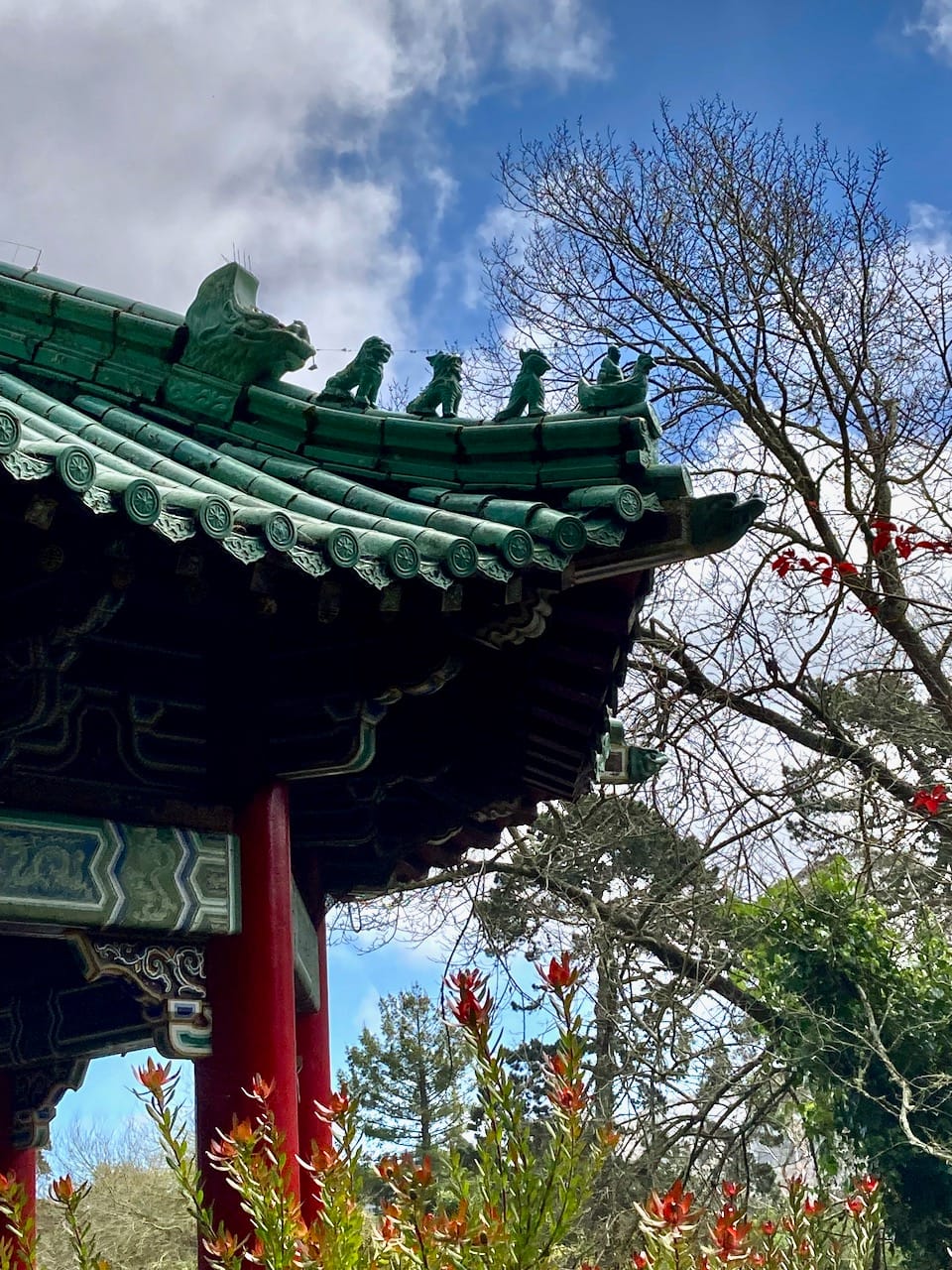


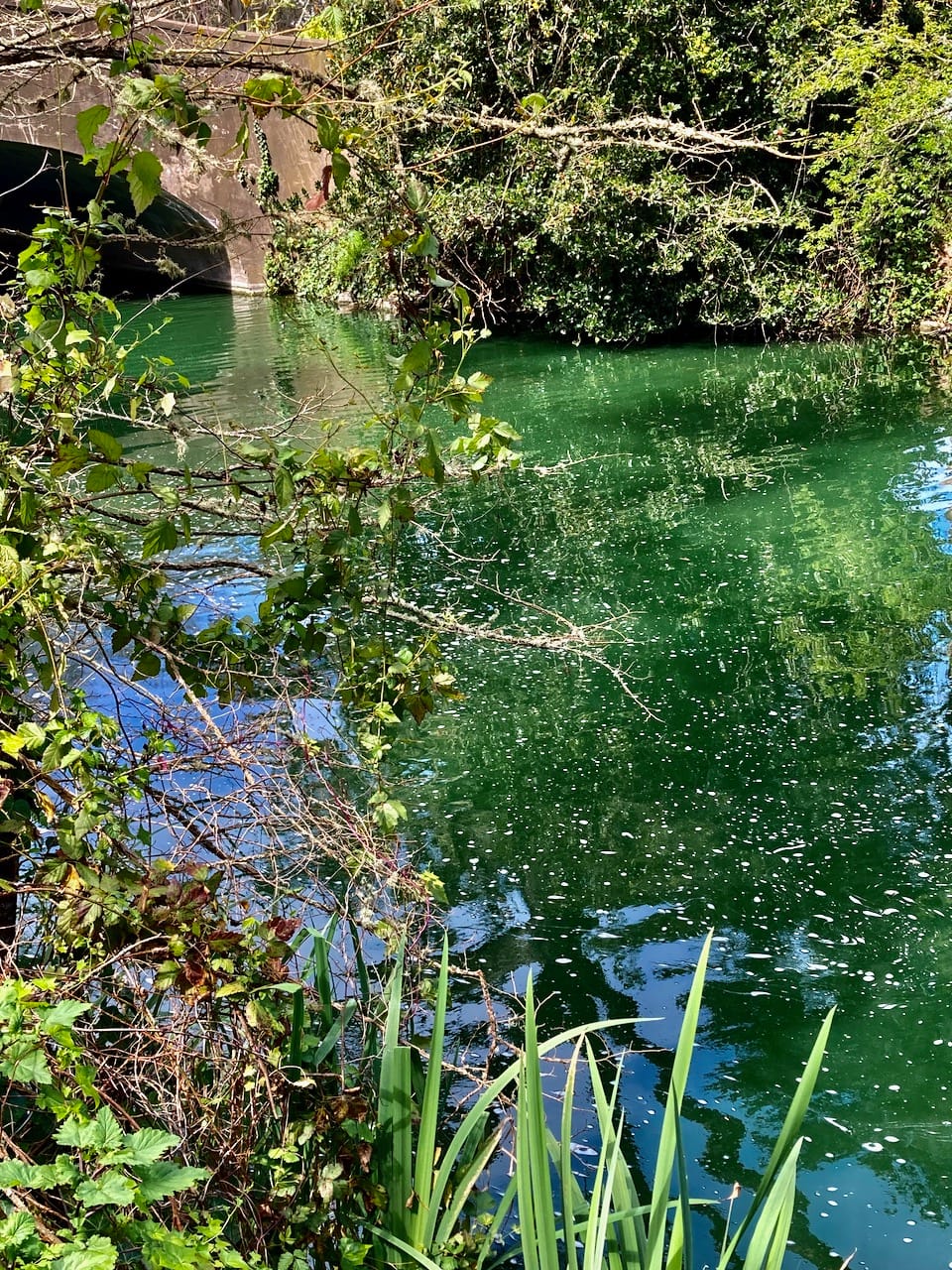
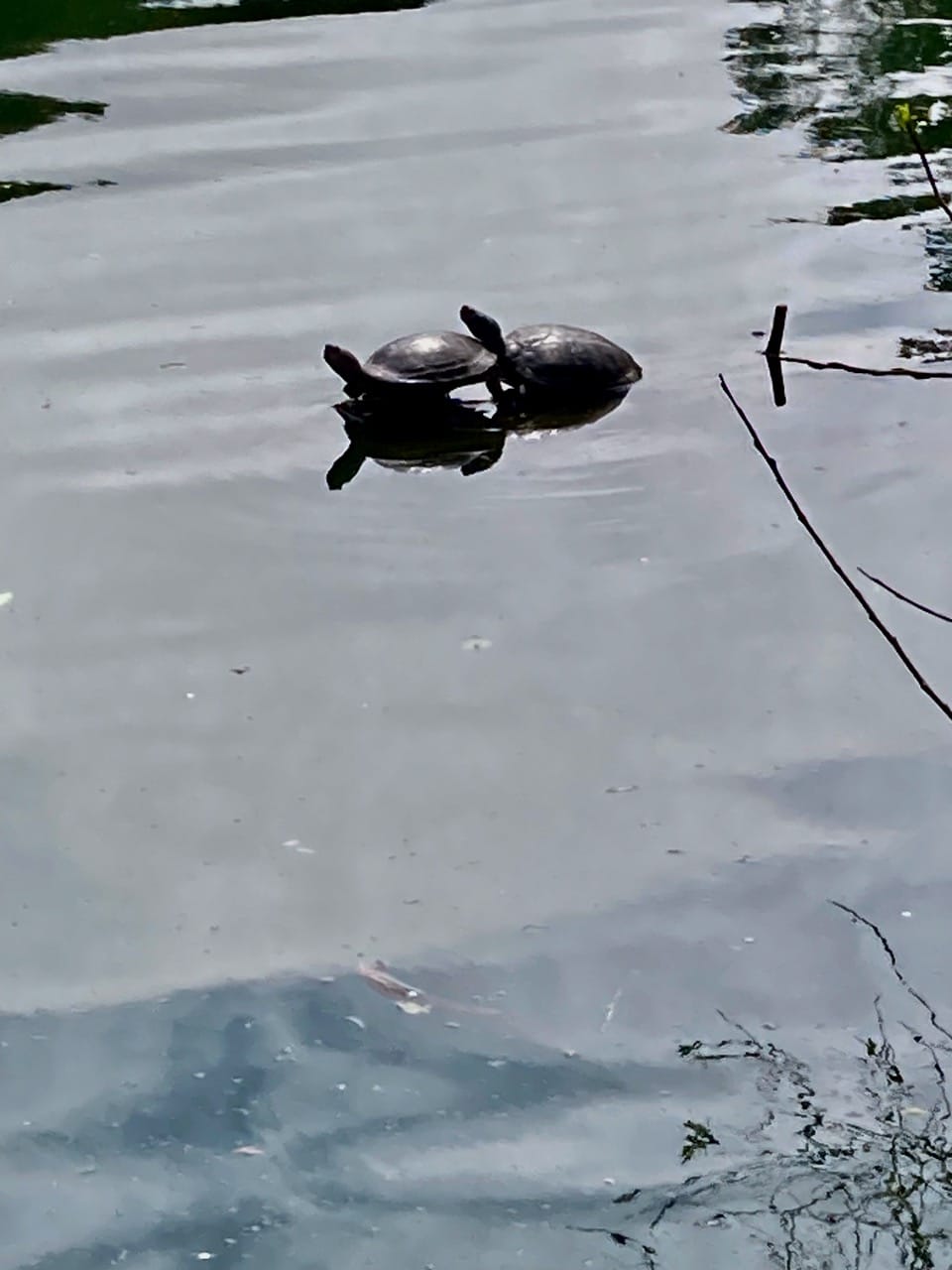

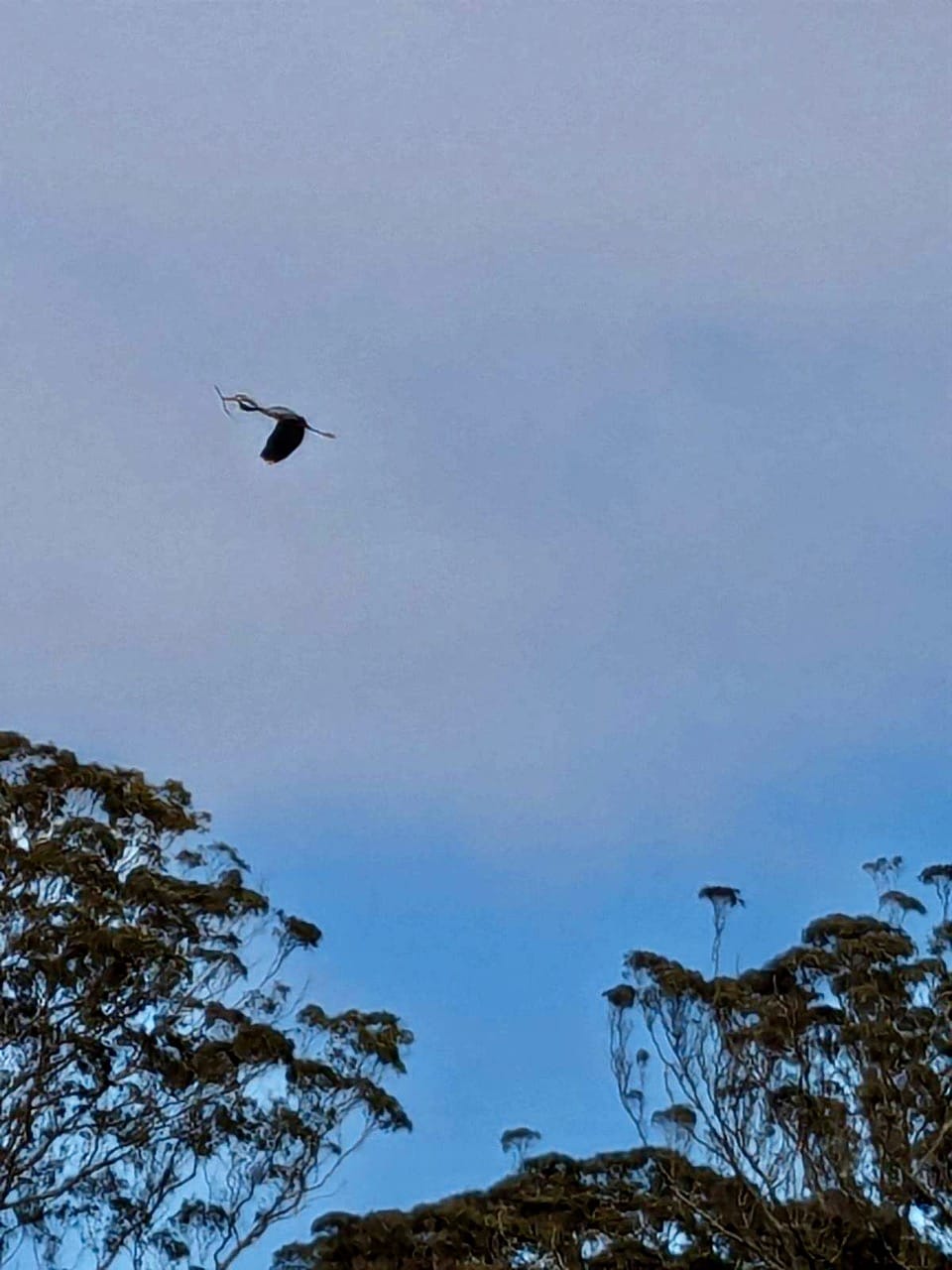

charles blass
1968–My First Whiff of Bullshit
by Ken Homer
Miss Ford was a large woman. She was nearly 6’ tall with close-cropped steel-gray hair, broad shoulders, and heavy legs. She wore orthopedic shoes, ankle-length skirts, and starched shirts buttoned up to her neck. She was probably in her mid-50s in 1968. She was my fifth-grade teacher.
At the time I had little awareness of sexual orientations. As I look back now, based on some of the things she did and said, I think it’s possible that Miss Ford was a lesbian. She exhibited a certain disdain for boys.
She once told us a tale that, if shared by a teacher in a school today, would get her a severe reprimand or ousted from her job.
As a nurse during WWII, she spent several years working in a convalescent hospital. There was once a young soldier in her care who had been terribly wounded in battle.
At first, he was rather helpless and required round the clock care. I think he’d lost the use of his arms but I’m not sure since Miss Ford was very sketchy on the details as to what kind of wounds he’d sustained.
Eventually the young man began to regain the use of his limbs and that caused the problem her story would illustrate for us.
One night, when she went to change his bandages, she caught him masturbating.
Of course she didn’t use that word. She told us that he was “touching himself–‘down there’–which is something none of you should ever do because it will have terrible consequences for you.”
A ripple of unease swept through the classroom, and I thought I saw a slight smirk play across Miss Ford’s face. She continued with her story. When she returned to work the next day, she went to check on this poor fellow. And when she pulled back the bedclothes, she discovered that his legs were no longer attached to his body–they had completely fallen off!
(None of the eleven-year-old kids in the class had the presence of mind to ask if he had bled out or if the separation was bloodless––self-cauterizing perhaps?)
Yep, she actually told that story to a classroom full of impressionable young kids in a public elementary school.
In my naïveté, I was extremely disturbed when I heard this story. I went home and told my father. He laughed and told me not to worry. That it was just a story that some silly woman was making up to scare us. (If ever there was an opening to initiate the sex talk that fathers are supposed to have with their sons this was it, but he didn’t take advantage of the moment–not that day nor at any other time)
Miss Ford’s tale has lodged itself so firmly in my mind is because it marked a turning point for me. Up until then I tended to trust what people in positions of authority reported to me as being unquestionably true. After discovering that she was fabricating total bullshit however I began to apply more skepticism and discernment, to ask for evidence and proof to back up wild claims. This was the beginning of my developing a bullshit detector. It turns out I that need this skill more than ever today. I suppose that’s true for us all now.
Ken Homer • April 2024
charles blass
On Fixing, On Rescuing
by Patti Cobian
Fixing and rescuing
savior behavior
the sly operator
wears a clumsy mask
I do, I did!
I changed, I fixed!
I owned it and
I made it mine
Welcome to the ego's playground
I'll fix the broken! I'll solve your problem!
There are no other ways here
but mine
A prize to claim
the hero!
finally regarded
with appreciation
Dance in celebration!
But the mask slips,
and now we see beneath
a dark tenderness that lies,
disguised,
beneath the striving,
and the weight
of our grief.
We turn away from those dark
soft, vulnerable centers,
the black holes
born of a need
that hadn't been met,
a frantic filling
of what should have been
in another time
an earlier year
But we hide the need
Ashamed of the need, unaware of the need,
knowing only it's ache and depth
in unguarded moments, brief.
We, the creators of worlds,
destroying our own
with all of the black holes
only visible in the absence
of what has been taken,
taken,
taken
Consumption is the game
isolation, the finishing line
and separation, the song
on the silent lips of every dead body
corpses scattered
a wasteland of death,
when there is no more to extract.
We exert
in the absence of trust,
and side-by-side, do we deny
the invitation that is our birthright:
back into the depths
to know our own tenderness
so that our true nature
can be born
In the soil
of a forgotten garden,
secrets are buried
the seeds of salvation for all
planted in our depths
seeping deeper and deeper into our tissues
forgotten,
until they rise again
malignant growth
organs, revolt
becoming the very fibers
of our deepest questions:
What is our place in the world?
but also
what is our place within ourselves?
These tired bodies burn with a question
that throbs and aches:
Where do I belong?
And so it is
in our quest to belong,
we penetrate and we burrow,
deeply,
we extract the life from another
until they are shriveled
so that we might enjoy
a moment of fullness
– fleeting, heart beating –
and in this way, for just a moment
we at least feel sure
about something.
charles blass
Thank you for reading! The next edition will be published on 1 May 2024. Email Pete with suggested submissions.
Grateful appreciation and many thanks to Charles Blass, Douglass Carmichael, Patti Cobian, Ken Homer, Kevin Jones, and Klaus Mager for their kind contributions to this issue.